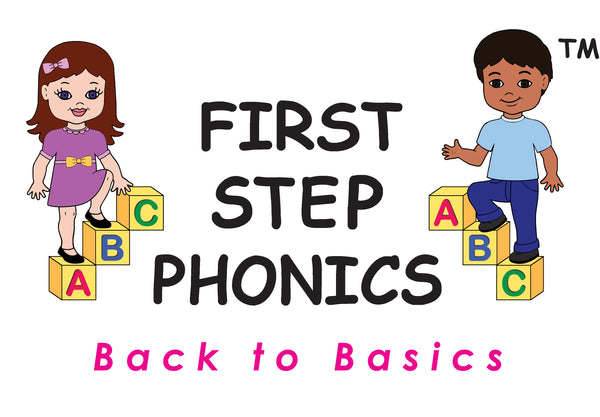Parent Resources
Not sure what product you need?
See our guide on How to Assess Your Student’s Reading Level and Correct Problem Areas.
Free Worksheets
If you need extra practice for your student, click the images below to download. Tell your friends!
 |
 |
 |
 |
 |
 |
 |
 |
Lesson Plans
Download the lesson plans from How to Teach Anyone to Read.
Why H is Not a Vowel
As an extra to the teaching manual, here is a more thorough explanation of H and why it is not a vowel.

Tips for Teaching Phonics
As a phonics tutor since 1983, I have found success teaching phonics in this sequence:
- NAMES of the letters in the entire alphabet, both uppercase and lowercase, and the alphabet sequence. For uppercase, lowercase and sequence, try First Step Phonics Level 0, workbooks 1, 2 and 3.
- SOUNDS of the consonants. For C and G, start with the hard sounds as in CAT and GOT. For alphabet sounds, try First Step Phonics Level 0, workbooks 4, 5 and 6.
- Start with only ONE vowel sound. I always begin with A.
- Blend two sounds. Vowel first, such as AM, AT, AN, AD is usually easier. Then move to consonant first — BA, FA, HA, etc. For the sound to short A and blending letters, try First Step Phonics Level 1, workbook A.
- Read books with your child that contain only three-letter words that stick to the short A sound. For this stage, try First Step Phonics Level 1, Set A books.
- Wait until your child has a solid grasp of the one vowel sound before introducing any others. Otherwise, your child may get confused since the five short vowels may sound similar to him or her. As you get to each vowel, try the other coordinating books and workbooks for Level 1.
ADDITIONAL TIPS:
I found that the vowel sounds for I and E are very similar and the child can become quite confused when both sounds are taught at the same time. After short A, you can teach short E, then do the short sounds for O and U, and leave I for last.
Creating an entire story with only three-letter, short-vowel words may be impossible. At times, words such as “a,” ”and,” “to,” and “the” are necessary to create correct sentences. Since these words do not follow the rules for Level 1, they will have to be memorized.
For a beginner, each step can feel overwhelming. Help them when needed, but don’t be afraid to let them work it out.
VERY IMPORTANT: To ensure progress, make sure each step is mastered before going to the next step.
For details on the above steps, explanations and more teaching tips, check out my bestselling book, How to Teach Anyone to Read.
I hope this helps. Good luck!
Veronica Blade
